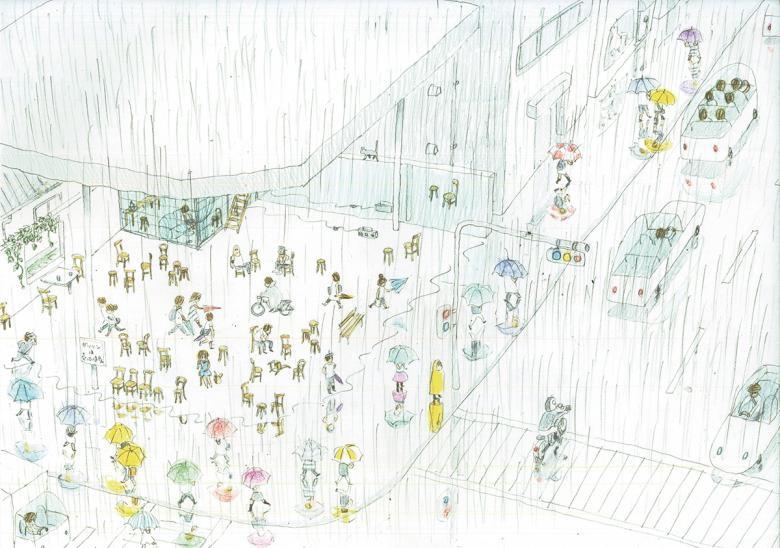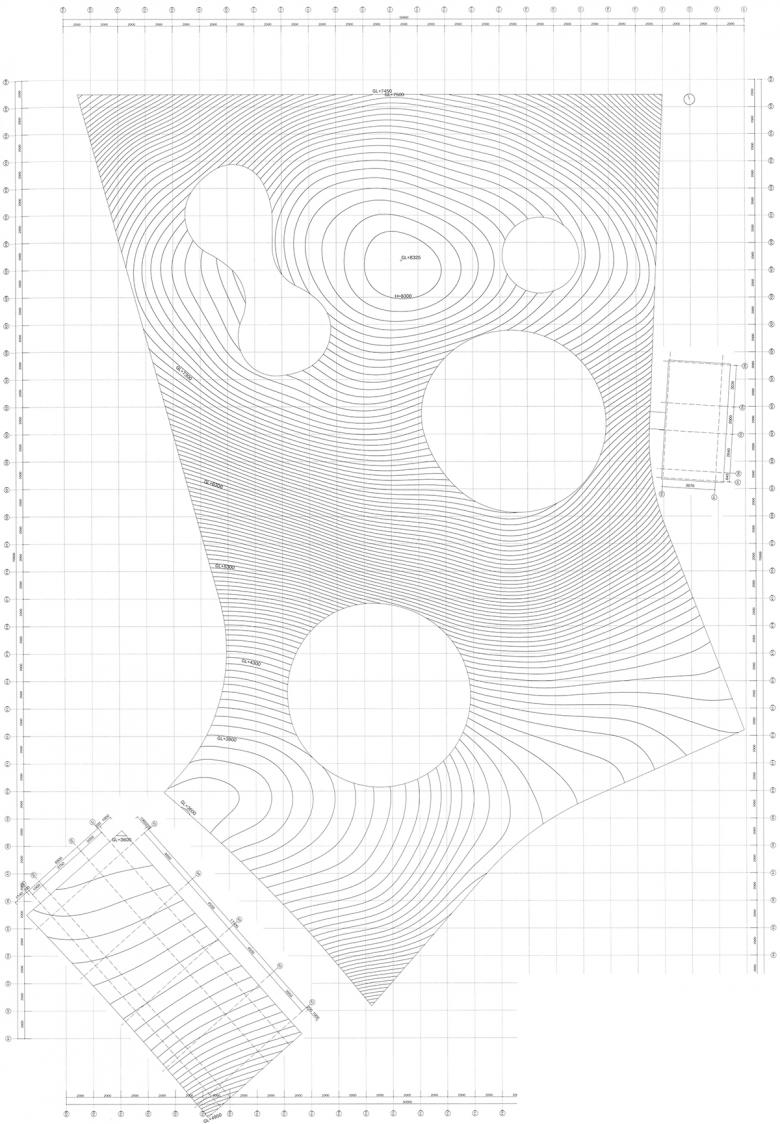Pictures of the Floating Microcosm
John Hill
31. januari 2018
Hideyuki Nakayama, My Vision for Tokyo, 2009 © Hideyuki Nakayama (All images courtesy of Park Books)
A new book by Olivier Meystre, Pictures of the Floating Microcosm: New Representations of Japanese Architecture, provides a critique of the design process and representational methods of contemporary Japanese Architects.
With compositions defined by lots of lines, a single line thickness, the occasional use of color, and no shading, the drawings of Junya Ishigami, Ryue Nishizawa, Kazuyo Sejima, and other Japanese architects are easily recognizable. Their delicate, almost ephemeral drawings have gained in popularity over the last couple decades, just as those same drawings have made the leap to actual buildings.
How contemporary Japanese architects design and draw (or, in some cases, model) is the focus of Meystre's new book, published by Zürich's Park Books. It combines interviews and lots of images to present, in his words, "a series of thematic cross-sections that reveal, on the basis of representation, different approaches to conceiving an architectural project."
Here we present a small sample of drawings that are included in the aptly titled Pictures of the Floating Microcosm.
Toyō Itō, White U, Nakano 1976 © Toyō Itō
Junya Ishigami, KAIT Workshop, Kanagawa 2007 © Junya Ishigami
Junya Ishigami, Row House, Tokyo 2008 © Junya Ishigami
Kentaro Kurihara, Miho Iwatsuki, Forest House in the City 2012 © Kentaro Kurihara
SANAA, Project Grace Farms, New Canaan 2012 © SANAA
Ryūe Nishizawa, Hiroshi Senju Museum, Karuizawa 2013 © Ryūe Nishizawa
Cover of "Pictures of the Floating Microcosm: New Representations of Japanese Architecture"
Gerelateerde artikelen
-
Pictures of the Floating Microcosm
on 31-01-2018







